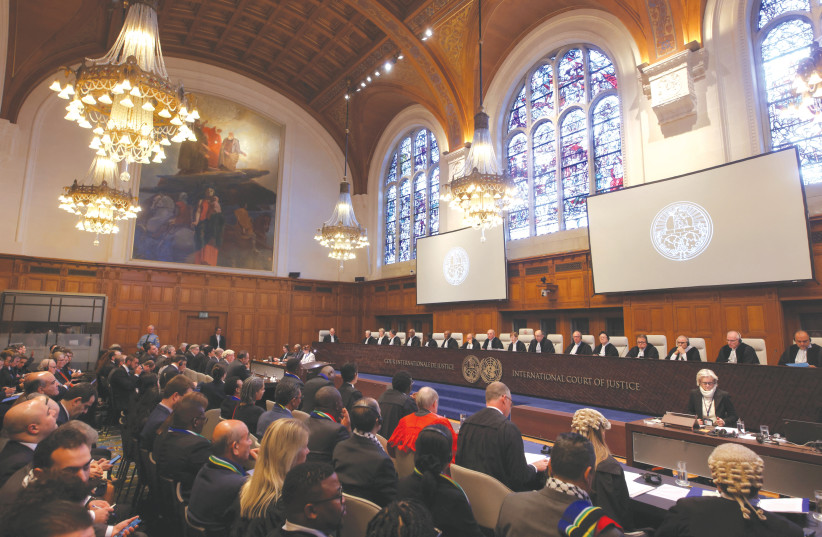ICJ: Settlements in West Bank, east Jerusalem are illegal
The United Nations’ highest court said that Israeli settlements in Palestinian territories are illegal under international law, in an advisory opinion issued on Friday.
The findings by judges at the International Court of Justice (ICJ), known as the World Court, are not binding but carry weight under international law.
“Israeli settlements in the West Bank and east Jerusalem, and the regime associated with them, have been established and are being maintained in violation of international law,” President Nawaf Salam said, reading the findings of a 15-judge panel.
The court added that Israel’s continued presence in the Palestinian territories was illegal and that it should come to an end “as rapidly as possible.”
It also said Israel must make reparations for damages caused by its ‘occupation’ of the Palestinian territories.

Context of the ICJ’s opinion advisory
The case stems from a 2022 request from the UN General Assembly, predating the current Israel-Hamas conflict.
The UN Assembly asked the court to appraise the legal consequences of Israel’s “prolonged occupation, settlement and annexation” of Palestinian territories, including east Jerusalem, and associated Israeli government policies.
In February, more than 50 states presented their views before the court, with Palestinian representatives asking the court to find that Israel must withdraw from all the occupied areas and dismantle illegal settlements.
Israel did not participate in the hearings but filed a written statement telling the court that issuing an advisory opinion would be “harmful” to attempts to resolve the Israeli-Palestinian conflict.
The majority of states participating asked the court to find the occupation illegal, while a handful, including Canada and Britain, argued it should refuse to give an advisory opinion.
The United States, Israel’s strongest backer, urged the court to limit any advisory opinion and not order the unconditional withdrawal of Israeli forces from the Palestinian territories.
In 2004 the ICJ gave an advisory ruling that an Israeli separation barrier around most of the West Bank was “contrary to international law” and Israeli settlements were established in breach of international law. Israel dismissed that ruling.





Comments are closed.